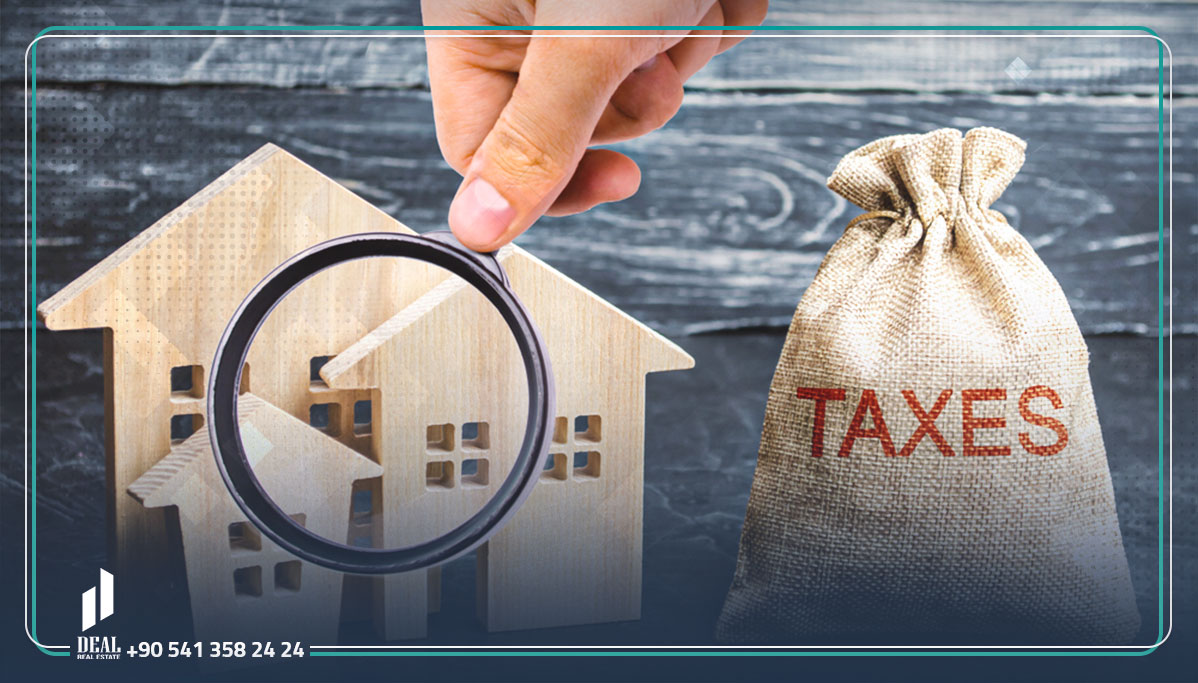All you need to know about luxury real estate tax in Turkey
All you need to know about luxury real estate tax in Turkey

Definition of the luxury real estate tax in Turkey:
The luxury real estate tax in Turkey is defined as those taxes imposed by the tax laws in Turkey on each property used for housing, provided that its value exceeds five million Turkish liras, following Law No. Ninety-four, which stipulates that the valuable housing tax has been collected from all Turkey's real estate within the borders of the Republic of Turkey, which bears the status of housing, and has a typical value of five million Turkish liras or more.
And according to the amendments that have been made to this Law, the process of collecting this tax has been imposed on real estate that fulfills the conditions mentioned in it starting in the year two thousand and twenty, but a new amendment has been made to the Law, which provided for delaying the start of the assignment of the valuable housing tax until the year 2021
As for the part of "real estate as housing" mentioned in the Law, it includes every residential building that forms an independent real estate part; in addition to that, it includes every independent real estate part of the buildings that includes a separate part or more, meaning that the independent residential real estate parts are calculated for their value separately. Therefore, each part alone, and to determine whether these real estate parts have the status of a dwelling, their Tapu records are referred to verify this.
Luxury real estate tax details in Turkey:
*How to calculate the luxury real estate tax in Turkey:
Article 29 of the Real Estate Tax Law is relied upon in calculating the tax value of the building, which states that the value of the valuable housing tax is determined based on the costs per square meter of construction, which is jointly determined by the Ministries of Finance and Treasury and the Ministry of Environment. And urbanization, in addition to the value of the land share of the property, is extended, following the legal principles of tax by the assessment committees.
Thus, the tax will be calculated for residential properties that meet the requirements of the Law and in which more than one shareholder is also available, based on the total value of the residential property.
* Place and time to pay luxury real estate tax in Turkey:
Valuable housing tax is paid by the owner of the residential property who fulfills the conditions required for the tax or by the owner of the right to use this property. In the absence of both of these persons, this tax is paid by the real estate administrator. If several owners own this residential property, Each of them pays part of the value of this tax in proportion to the share he owns from this residential property.
While the assignment to pay the luxury real estate tax in Turkey begins a year after the date of exceeding the tax value of the real estate that was mentioned in Article forty-two of the real estate tax law to limit the home tax of 5 million Turkish liras in 2020 and 5.200.027 in 2021.
Exemption from real estate tax in Turkey:
The luxury real estate tax law in Turkey provides that residential real estate is exempted from paying the valuable housing tax even if this real estates meet the conditions required for the tax. These real estate are all residential apartments in Turkey owned by departments and departments with a private or public budget and, for example, owned by municipalities and universities and the Presidency of the Housing Administration or residential real estate that you have the right to use.
As for those who own more than one property that fulfills the conditions that require paying the luxury real estate tax or the valuable housing tax within the borders of Turkish lands, the minor real estate that meets the terms of the mandate to pay is exempted the condition that it is a single residence for its owner or the owner of those who has the right to use it.
The owner of the lowest value share in residential real estate that meets the conditions of the luxury real estate tax is also exempted if the share he owns in this real estate is in his only residence.
The residences owned by foreign countries, such as the residences of ambassadors and consulates, and those belonging to international institutions operating within the borders of Turkish territory, are also exempted, as well as residential properties that are still under construction and that are supervised by public companies in the construction sector and It still has not been sold or owned for the first time yet, in addition to the residential real estate that the contractor obtains in return for the undertaking to build on the condition that this residential real estate is not leased or used in any way whatsoever.
Have Question Or Suggestion ?
Please Share Your Thought, To Make It Real


